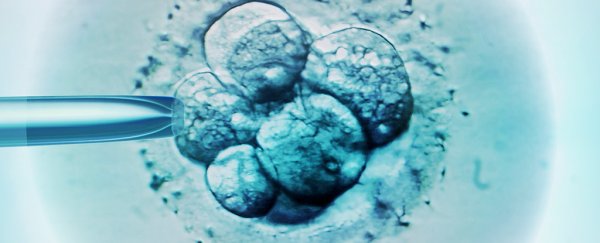On 26 November 2018, a Chinese biophysics researcher named He Jiankui shocked the world by announcing to the media that two girls had been born the previous month with genomes edited by CRISPR-Cas 9 technology.
For the previous two years, He had been working with eight couples recruited through a Beijing agency, where the fathers had a HIV diagnosis and the mothers were HIV negative. His goal was to modify a gene responsible for a cell receptor called CCR5 in embryos donated by the couples, compromising HIV's ability to invade white blood cells.
The scientist stands accused of having faked ethical reviews in order to proceed with his experimentation, and is rumoured to have been imprisoned by Chinese authorities on charges of illegally practicing medicine. It isn't clear whether He's work was funded entirely through his own resources, or if he received support from others.
He had been a researcher with the Southern University of Science and Technology in Shenzhen, where he claimed in talks to have carried out CRISPR research on monkeys, mice, and human embryos. The university has since distanced itself from the researcher and his work.
Where are the children today?
Little is known about the state or whereabouts of the two girls, commonly referred to by their pseudonyms Lulu and Nana, further fuelling controversy over this claimed 'world first' or consequences for the children. Rumours of a third child's birth in mid-2019 emerged in January 2020.
Subsequent studies have raised and refuted questions over how their health may have been affected by the process, with experts expressing doubts over the intended benefits of the procedure.
All topic-based articles are determined by fact checkers to be correct and relevant at the time of publishing. Text and images may be altered, removed, or added to as an editorial decision to keep information current.
